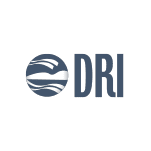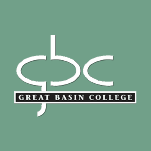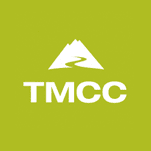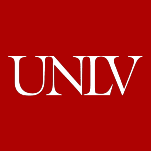Committees
ad hoc Committees
Meets at the discretion of the Committee Chair
Membership
Standing Committees
Meets quarterly in conjunction with the Board of Regents regular meeting
Membership
- Joseph C. Arrascada, Chair
- Jeffrey S. Downs, Vice Chair
- Aaron Bautista
- Heather Brown
- Carol Del Carlo
Charges
The Academic, Research and Student Affairs Committee shall:
- Provide guidance in the development, review and recommendation of academic programs and degrees of the NSHE;
- Consider and recommend to the Board policies concerning academic master plans;
- Consider and recommend to the Board policies and practices concerning articulation and the transfer of students between and among the member institutions;
- Consider and recommend to the Board policies relating to admission requirements, student services, academic standards, grading practices and requirements for graduation;
- Consider and recommend policies to the Board regarding implementation of distance education, telecommunicated education and applications of educational and information technology in support of teaching, learning, research and creative activities;
- Consider and recommend to the Board policies that appropriately align research within NSHE institutions with the priorities of the State Plan for Economic Development and support and encourage private sector engagement;
- Facilitate the development, review, and implementation within the NSHE of research initiatives that are statewide or inter-institutional in nature, including applied research and development, university-industry technology transfer, and technology-based economic development;
- Facilitate dialogue between the NSHE, business and industry, state and federal governmental representatives, and economic development/diversity stakeholders throughout Nevada in determining research and economic development needs and related issues;
- Oversee and review campus management of faculty workload to assure equity, efficiency and effectiveness in the disposition of faculty effort;
- Facilitate the development, review, and implementation of policies by the Board relevant to the learning climate, working climate, and support mechanisms for faculty, staff, and students;
- Review and make recommendations concerning campus plans for the provision of child care and disability services; and
- Jointly with the Business and Finance Committee, consider and recommend to the Board policies concerning NSHE enrollment management plans, tuition and fees and the development of a student financial aid system for the NSHE that promotes access to public higher education for all Nevadans.
Meets quarterly
Membership
- Susan Brager, Chair
- Carol Del Carlo, Vice Chair
- Aaron Bautista
- Patrick J. Boylan
- Pete Goicoechea
Charges
The Audit, Compliance and Title IX Committee shall:
- Review and evaluate internal audit reports, compliance reports and follow-up reports.
- Recommend to the Board independent certified public accountants to audit the financial books and records of the NSHE and review and evaluate the reports of such independent certified public accountants.
- Formulate and make recommendations to the Board regarding policies necessary for the enforcement of sound accounting/auditing practices and an effective compliance function.
- Evaluate and make recommendations on internal controls.
- Make such recommendations, as it deems necessary, for the correction of deficiencies in management practices discovered by audit reports, or for the resolution of issues pertaining to non-compliance with policies, procedures or other requirements.
- Provide centralized oversight of programs for compliance with policies, procedures and other requirements.
- Monitor the performance of the internal audit and compliance functions.
- Review the respective Internal Audit Charter and Compliance Charter on a periodic basis to ensure the functions are complying with professional standards and addressing emerging issues appropriately.
- Examine information and indicators regarding Title IX compliance and make any policy recommendations to the Board.
- Make recommendations to the Board regarding Title IX initiatives that foster awareness of and enhance commitment to a non-discriminatory campus environment.
Meets quarterly in conjunction with the Board of Regents regular meeting
Membership
- Amy J. Carvalho, Chair
- Susan Brager, Vice Chair
- Carlos D. Fernandez
- Pete Goicoechea
- Stephanie Goodman
Charges
The Business, Finance and Facilities Committee shall:
- Review and recommend to the Board the operating budget requests and work programs for the NSHE, with the primary objective of affirming the connections between the NSHE Master Plan and System-wide priorities, budget requests and funding allocations.
- Review and recommend to the Board the self-supporting budgets and work programs for the NSHE.
- Make recommendations to the Board for the financing of the activities of the NSHE and the expenditure or use of NSHE financial resources.
- Review institutional and System proposals that create added fiscal requirements and/or alter established planning directions.
- Oversee System direction of, or participation in, studies of funding mechanisms and approaches for public higher education in Nevada.
- Review and make recommendations on NSHE risk management and insurance programs.
- Monitor the technology needs and systems of the NSHE to ensure optimal use of resources for integrated System-wide information systems and other proper strategic uses of technology within the NSHE.
- Review institutional requests to purchase or dispose of NSHE property.
- Review all institutional requests to enter into property lease agreements in accordance with Board policy and applicable law.
- Review any requests to lease NSHE property to an outside agency or private entity.
- Review the land acquisitions and disposal portions of all institutional master plans.
- Review all institutional requests for easements on NSHE property.
- Review annual update of all NSHE property holdings and long-term leases.
- Review and recommend to the Board the NSHE capital improvement priority lists, with the primary objective of affirming the connections between the requests and the institutional facilities master plans.
- Review and recommend to the Board institutional facilities master plans.
- Review and recommend to the Board a System space utilization model and periodically review institutional and System-wide space utilization data.
- Review and make recommendations to the Board regarding the Board’s Efficiency and Effectiveness Initiative.
Meets in the first and third calendar quarters
Membership
- Stephanie Goodman, Chair
- Susan Brager, Vice Chair
- Carol Del Carlo
- Carlos D. Fernandez
- Jennifer J. McGrath
Charges
The Health Sciences System Committee shall promote quality education, research, patient care and community health across health care disciplines, driven by access, quality, value and the needs of people of the State of Nevada.
Meets in the second and fourth calendar quarters
Membership
- Jeffrey S. Downs, Chair
- Joseph C. Arrascada, Vice Chair
- Amy J. Carvalho
- Carlos D. Fernandez
- Stephanie Goodman
Reporting
Diversity Reports: Annual overview of the current status of enrollment and employment of members of diverse groups across the NSHE.
NSHE Institutional Diversity Reports: Various diversity-related reports submitted to the Committee from 2008 to the present.
Charges
The Inclusion, Diversity, Equity and Access Committee shall:
- Recommend policies to the Board to create, enhance, promote and support an educational and working environment that fosters inclusion, diversity, equity and access for all students, faculty and staff;
- In collaboration with NSHE’s Inclusion, Diversity, Equity and Access Council appointed by the Chancellor pursuant to Title 4, Chapter 8, Section 5 of the Board of Regents Handbook, review and assess issues, information and activities that promote inclusion, diversity, equity and access among the students, staff and faculty of the System;
- Take actions appropriate to increase awareness, visibility and emphasis of campus inclusion, diversity, equity and access; and
- Apply the definitions and meanings to the terms used in this section as follows:
- “Inclusion” means active and intentional engagement, affirmance and valuing/respect for individuals and groups of diverse backgrounds, and creating a place of belonging for all individuals and groups across the System;
- “Diversity” includes the differences among individuals or groups that impact perceptions, experiences and interactions, including, without limitation, differences based upon race (including hair texture and protected hairstyles such as natural hairstyles, afros, bantu knots, curls, braids, locks and twists), ethnicity, color, national origin, gender (including pregnancy-related conditions), sexual orientation, gender identity or expression, genetic information, physical ability or disability, military status or military obligation, culture, age/generation, education, income/socioeconomic status, religion, expression, linguistics and intellect.
- “Equity” means fair and just treatment, access, opportunity and advancement for all individuals and groups, and the absence of barriers to inclusion and achievement that are systemically associated with societal advantage or disadvantage based on diversity; and
- “Access” means the equitable opportunity for all to fully participate in and contribute to programs, services, activities, environments, and decision/policy making. Access includes ways to make space for all individuals and groups to participate regardless of ability and experience such as accounting for design and use of spaces (physical and virtual), language, culture, information, and relationships.
Meets at the discretion of the Committee Chair
Membership
- Jeffrey S. Downs, Chair
- Joseph C. Arrascada, Vice Chair
- Amy J. Carvalho
- Stephanie Goodman
- Jennifer J. McGrath
Charges
The Investment Committee shall:
- Formulate and recommend to the Board appropriate investment policies to govern the investment program of the NSHE;
- Implement such recommendations deemed appropriate concerning investments of the endowment and operating pools consistent with the investment policies approved by the Board and with agreements, if any, with the investment managers of the NSHE; and
- Review and evaluate reports from the investment managers of the NSHE concerning investments of the endowment and operating pools within the limits of the investment policies approved by the Board.
Meets in the first and third calendar quarters
Membership
- Patrick J. Boylan, Chair
- Joseph C. Arrascada, Vice Chair
- Aaron Bautista
- Heather Brown
- Jeffrey S. Downs
Charges
The Security Committee shall:
- Study issues and policies to maintain a secure environment where students, faculty, staff and visitors may safely live, learn and work.
- Review policies, procedures and best practices concerning campus safety, homeland security and cybersecurity issues.
- Monitor campus safety issues and receive quarterly updates from all institutions on campus crime statistics.
- Ensure institutions develop and periodically update emergency response plans.
- Make policy recommendations to the Board intended to provide a safe and secure environment for students, faculty, staff and the public at all campuses and offices of the Nevada System of Higher Education.
Meets at the discretion of the Committee Chair
Membership
- Heather Brown, Chair
- Carol Del Carlo, Vice Chair
- Susan Brager
- Pete Goicoechea
- Jennifer J. McGrath
Charges
The Workforce Committee shall:
- Advise the Board on workforce training programs offered by the community colleges in areas including but not limited to hospitality, tourism, culinary arts, healthcare, information technology and coding, and applied technologies (construction, manufacturing, transportation, automotive, air conditioning, etc.);
- Consider and recommend Board policies that support workforce development and training programs of the community colleges;
- Make recommendations to align the degree and workforce credentialing programs offered by the community colleges, including but not limited to non-credit and accelerated programs, with the economic development goals identified by the Office of Economic Development pursuant to Nevada Revised Statutes 396.531;
- Review and make recommendations regarding the strategic initiatives of the community colleges developed to support workforce strategic goals adopted by the Board of Regents; and
- Review and make recommendations for programs that promote student access and success at community colleges, including but not limited to the Silver State Opportunity Grant and the Nevada Promise Scholarship program, and how such programs can support workforce training initiatives.








